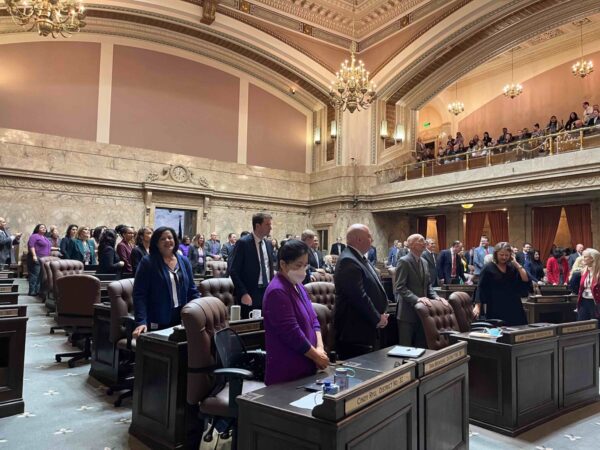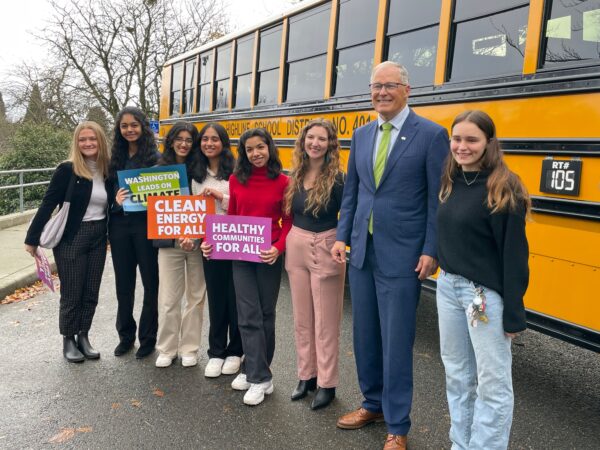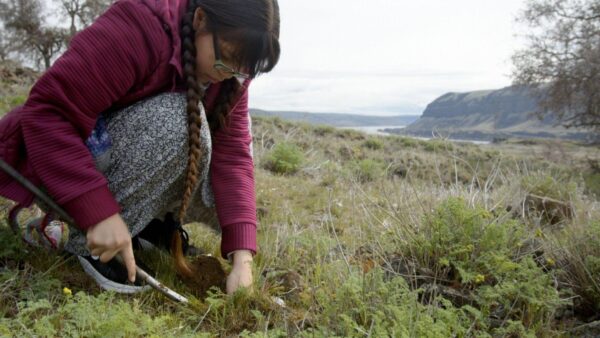ENVIRONMENTAL PRIORITIES COALITION
From clean energy to orca protection state marks more progress than any time in the last decade
Olympia, WA – April 28, 2019 – Washington’s Environmental Priorities Coalition (EPC), that represents more than 20 statewide organizations, celebrated an unprecedented legislative session that addressed some of Washington’s most urgent environmental problems. This session saw major progress on issues that have faced the state for years, in some cases decades.
Years of work led to 2019 environmental protections
Nearly every bill that passed has previously been a major legislative priority of the EPC or has previously been introduced but has not passed both Chambers. This session’s success reflects work done over multiple sessions and years of development by stakeholders and partners across the state.
First-year legislators vital to success
Several key environmental bills were sponsored by first-year legislators like a state-wide plastic bag ban (SB 5323) sponsored by Senator Mona Das and spill prevention (HB 1578) sponsored by Representative Debra Lekanoff. Across nearly every priority bill passed, first year legislators played an instrumental role in either sponsoring bills or taking key votes to move them forward in committee.
EPC quotes on 2019 success
“Through the dedicated work of a broad team of partners and strong public support, the 2019 legislative session signaled a new direction for our environment,” said Darcy Nonemacher, lobbyist for Environmental Priorities Coalition. “Because of the remarkable work done this year, our kids’ air will be cleaner, our streams and Puget Sound will be healthier, and Washington is once again a leader for the rest of the country in the fight against climate change.”
“Last November, Washington elected one of the largest pro-environmental legislative classes in our state’s history and we all see the results,” said Joan Crooks, CEO of Washington Conservation Voters. “Together with long-time champions, these first-year legislators have shaken our state capitol awake. People called for environmental progress and Washington just delivered.”
Quotes from legislative environment leaders
“As a husband, father and citizen legislator it is a personal and professional honor to have played a role in helping to pass the most substantive environmental agenda in a generation,” said Senator Reuven Carlyle, Chair of the Senate Environment, Energy & Technology Committee. “Our work this year goes beyond traditional political clichés and embraces a bold climate action agenda that will make a meaningful impact for our grandchildren’s quality of life. This year we hit stand up double after stand up double and moved our team around the bases by working together. Our dream of reaching Paris Accord-level carbon reductions in the years to come is no longer a fantasy but a serious aspiration that is within our reach.”
“This was a breakthrough legislative session for Washington’s environment,” said Representative Joe Fitzgibbon Chair of the House Environment and Energy Committee (D-West Seattle). “We passed strong bills to reduce greenhouse gas emissions from buildings, electricity, and refrigeration, to protect endangered orcas and salmon, to reduce waste, and to eliminate toxic pollution at the source. Getting a clean fuel standard through the House was also a big victory. Looking ahead we know how much work remains on clean fuels, reducing greenhouse gas emissions more broadly, and addressing plastic pollution.”
Key victories this session included:
Addressing climate change and transitioning to clean energy in every sector of the economy
- (Electricity) 100% clean (SB 5116) lead sponsor Senator
Reuven Carlyle (D-Seattle) and Representative Gael Tarleton (D-Seattle)
- The strongest 100% clean energy requirement in the nation, transitioning the state’s electrical grid off coal by 2025, carbon neutral by 2030, and completely free of fossil fuels by 2045. The bill also includes innovative approaches to protect low-income communities and ties clean energy incentives to strong labor standards.
- (Built
environment) Clean buildings standards (HB 1257) lead sponsor
Representative Beth Doglio (D-Olympia)
- Empowers the Commerce Department to craft strong energy performance standards and an incentive program for large commercial buildings and establish natural gas conservation and efficiency standards. Also requires electric vehicle charging readiness in new buildings.
- (Industry) Super pollutants (HB 1112) lead sponsor
Representative Joe Fitzgibbon (D-West Seattle)
- Phases out hydrofluorocarbons, a highly potent greenhouse gas mostly used in industrial refrigeration equipment
- (Transportation) Green
transportation
(HB 2042) lead sponsor Representative Jake Fey (D-Tacoma)
- Invests in clean transportation including electric vehicle incentives and transit electrification
- (Built environment) Appliance
efficiency standards (HB
1444) lead sponsor Representative Jeff Morris (D-Anacortes)
- Sets energy and water efficiency standards for appliances solid in Washington
- (Electricity) Solar Fairness Act (SB 5223) lead sponsor Senator
Guy Palumbo (D-Bothell)
- Protects net metering, utility customers ability to sell the solar energy they produce back to their utility
Orca recovery and Puget Sound restoration
- Protecting habitat (HB 1579) Lead
sponsor Representative Joe Fitzgibbon (D-West Seattle)
- Supports chinook salmon and forage fish populations by protecting habitat and reducing invasive predatory species
- Preventing oil spills (HB 1578) lead
sponsor Representative Debra Lekanoff (D-Bow)
- Extends proven safeguards to vessels carrying crude oil such as barges and smaller oil tankers previously under regulated by establishing zone-based tug escort requirements for oil-laden vessels in the waters around the San Juan Islands
- Reducing vessel noise and disturbance (SB
5577), lead sponsor Senator Christine Rolfes (D-Bainbridge Island)
- Increases the vessel buffer zone around orcas, reduces vessel speed to 7 knots within half nautical mile, institutes commercial whalewatch licensing and fees, and initiates process to identify safe whale watching around Southern Resident orcas so they can more easily find prey
- Reducing sources of toxic pollution (SB 5135),
lead sponsor Senator Christine Rolfes (D-Bainbridge Island)
- Prevents toxic pollution by addressing the use of classes of chemicals that are of particular concern to vulnerable populations like kids and sensitive species like orcas
State budgets see major improvements
- MTCA Toxic site clean-up The legislature also updated and stabilized funding — paid for by polluters — to clean up toxic sites, reduce stormwater runoff, and prevent toxic chemicals from impacting our health and the environment with stabilized funding for the state’s Model Toxic Control Act. Environmentalists, frontline communities, and local governments have called for these changes for more than a decade.
- Capital Budget The new two year budget also includes crucial investments for orca recovery, clean energy development, and working forest conservation. The budget also includes a directive to identify environmental health disparities and creates a task force to center communities most impacted by pollution and environmental harm in decision making.
Leading into 2020 session
- Clean Fuels After major progress, Clean Fuels legislation will be a top 2020 priority. Passage through the House laid a major foundation for passage next year so Washington can join our neighbors in BC, Oregon, and California in reaping the economic and clean air benefits of low carbon fuels.
- Plastic bags A state single use plastic bag ban, SB 5323 sponsored by Senator Mona Das (D-Kent), passed through the Senate but did not make it through the House. This is an issue we will return to and continue to champion in 2020.
###
The Environmental Priorities Coalition is made up of more than 20 statewide organizations working to safeguard our environment and the health of our communities in the legislature



